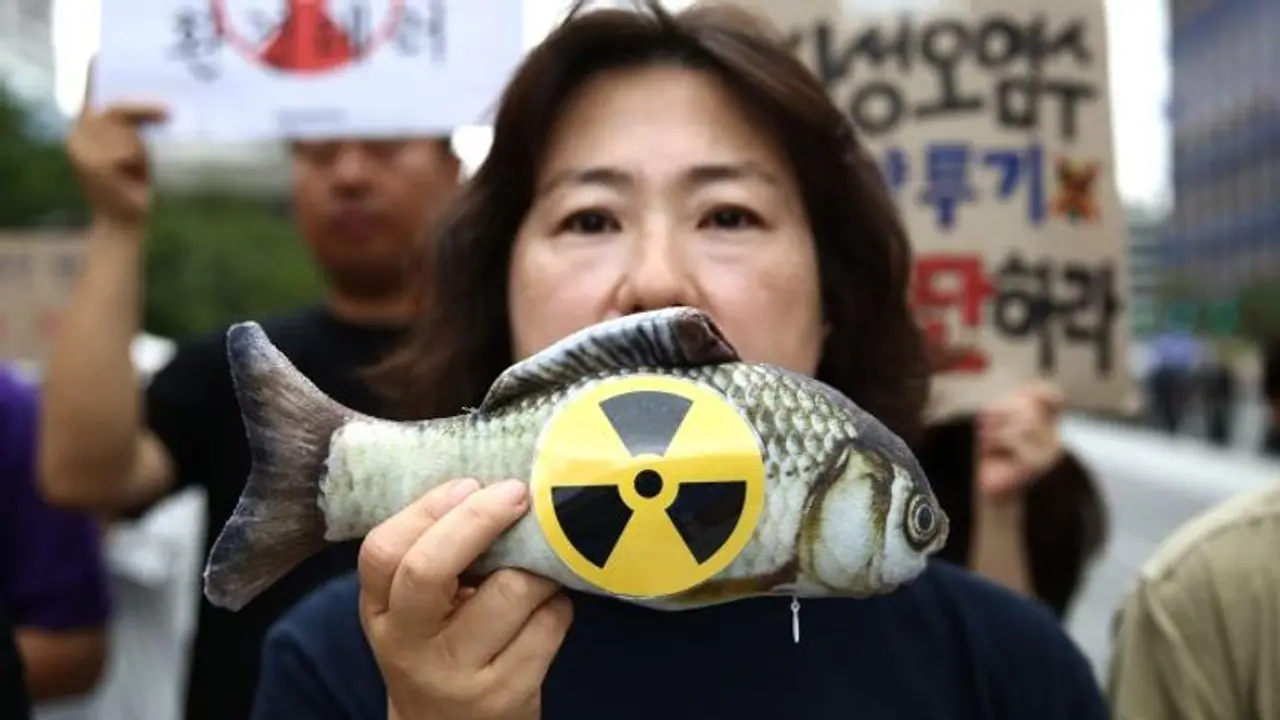As Japan begins discharging treated radioactive water from the Fukushima nuclear plant into the ocean, Hong Kong enforces a seafood import ban from Japan due to concerns about food safety. The move has garnered opposition from countries like China.
As Japan initiates the discharge of treated radioactive water from the damaged Fukushima nuclear plant into the sea, Hong Kong has implemented a ban on seafood imports from Japan. This move comes as Japan releases over a million tons of water from the plant, with Tokyo asserting that the water is safe and primarily used for cooling damaged reactors since the 2011 tsunami.

Although the plan has received approval from the UN nuclear watchdog, it has encountered opposition from several countries, including China, due to concerns about food safety. Hong Kong's Chief Executive, John Lee, a strong critic of the release, has activated import controls on Japanese seafood, citing its irresponsibility and the perceived risks to food safety and marine environmental pollution.
John Lee emphasized that he had instructed relevant departments to activate import controls immediately to safeguard food safety and public health. There is currently no set duration for the ban, and its continuation will depend on data and information provided by Japan following the discharge.
Additionally, Macau has also decided to implement the ban, covering goods from the same ten Japanese regions.
What Does the Ban Entail?
In July, Hong Kong announced that the ban would encompass imported aquatic products originating from Japanese regions such as Tokyo, Fukushima, Chiba, Tochigi, Ibaraki, Gunma, Miyagi, Niigata, Nagano, and Saitama. However, exports from 13 other regions would still be allowed. This measure extends to various forms of aquatic products, including live, frozen, refrigerated, dried items, sea salt, and seaweed.
What Will Be the Impact of the Ban?
Hong Kong represents Japan's second-largest market, following China, for agricultural and fisheries exports. Consequently, many restaurants are anticipated to face significant challenges, with some considering incorporating more meat options into their menus to compensate for potential losses of up to 40%.
Protests in South Korea
South Korean activists have expressed their opposition to the plan. However, Seoul has conducted its own study, determining that the water release aligns with international standards. It also respects the assessment made by the International Atomic Energy Agency (IAEA). On Tuesday, Seoul clarified that, from a scientific and technical perspective, there were no issues with the plan, though this didn't necessarily imply full support.
Traces of Tritium
The volume of water being released is substantial, equating to more than 500 Olympic-sized swimming pools. This water comprises both groundwater and rain that has infiltrated the containers.
To ensure safety, the water has undergone a process of dilution and filtration to eliminate radioactive substances. Nevertheless, some traces of tritium, a challenging-to-separate hydrogen isotope, persist, as reported by Tepco. Tepco further assures that the water will be diluted to levels well below internationally approved tritium thresholds before its release into the Pacific Ocean.
